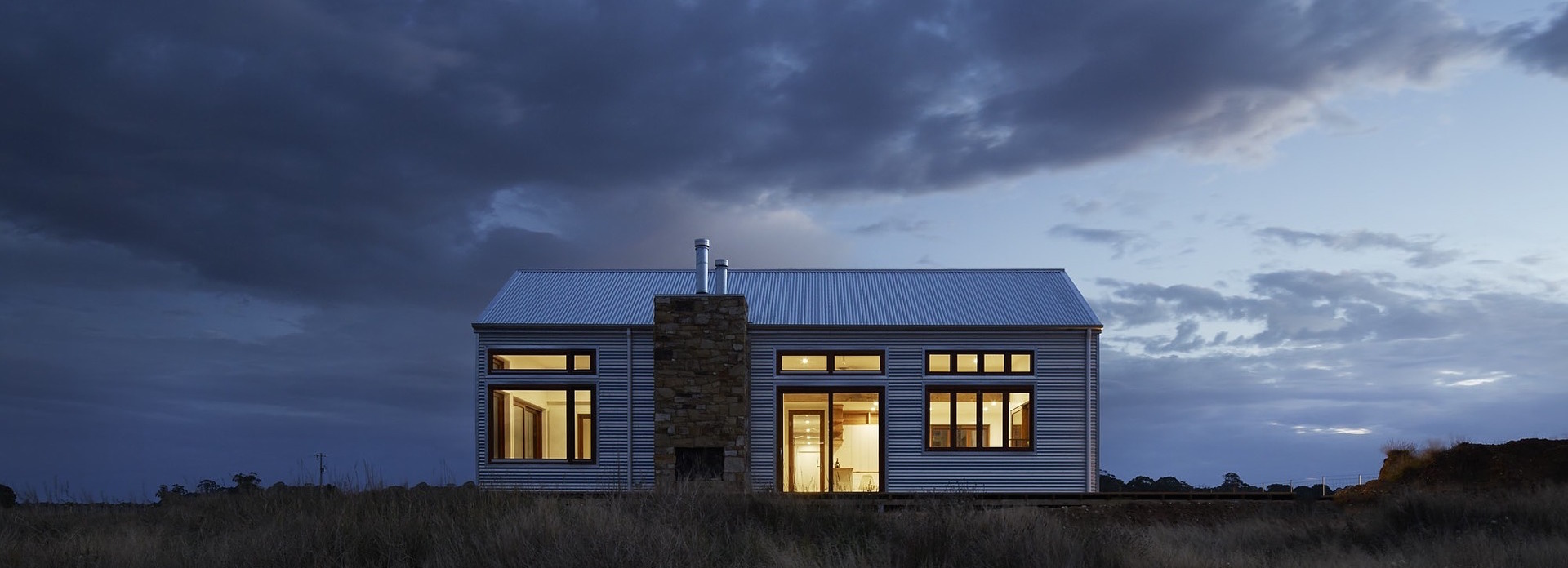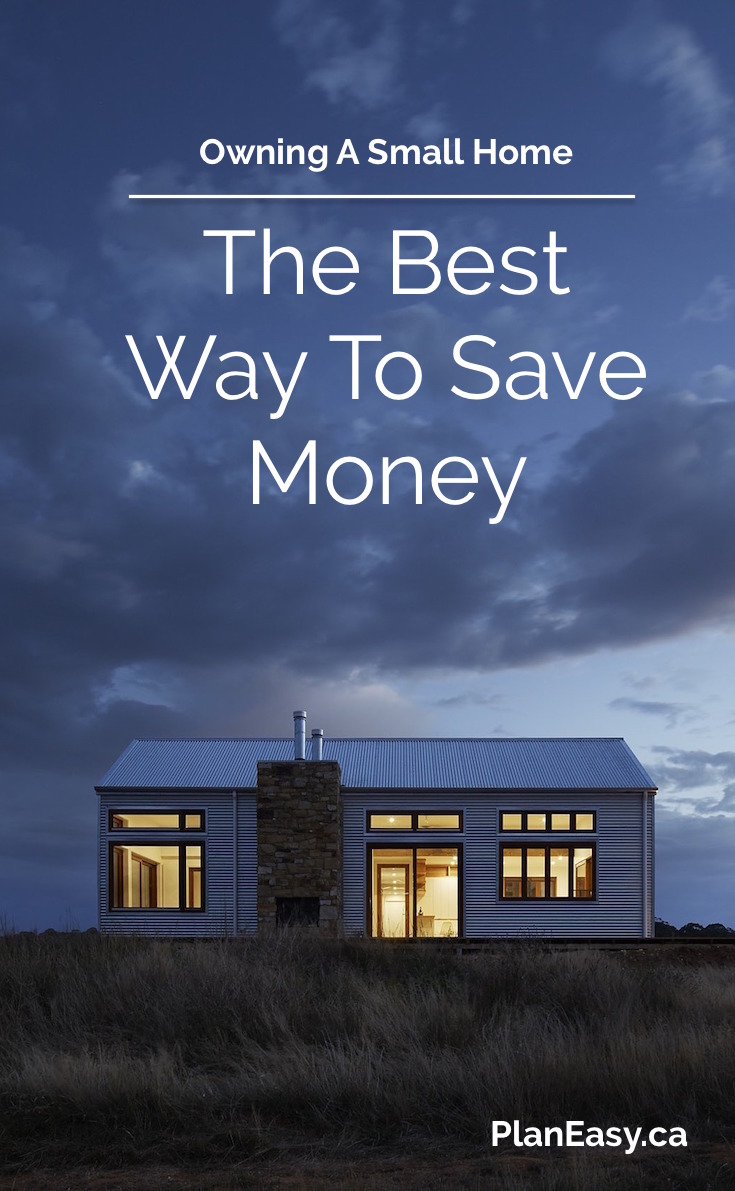Living Small: The Best Way To Save Money
When first buying a home it’s hard to comprehend the sheer number of new expenses there are. There are mortgage payments, home insurance, property taxes, maintenance, water, sewer, electricity and gas, just to name a few.
When coming from a rental you may be blissfully unaware of all the new home expenses that you now need to budget for.
These extra expenses are tied directly to the size of your home. A larger home means larger expenses.
Before purchasing a new home consider all the expenses attached to your decision. Buying “just enough home” is a great way to save money. Buying “too much home” can cost thousands per year in extra expenses.
This is one of the main reasons my wife and I live with our two daughters in a small 1,000 sqft bungalow. Although we could afford a much larger home we chose to purchase something much smaller.
Our home has three small bedrooms, a large living room, kitchen and dining room. There is no family room and we have only one bathroom on the main floor (but there is a second bathroom in our finished basement).
We save about $15,000 per year in living expenses when compared to other family homes in our area.
Living small is the best way to save money because there are so many expenses tied directly to the size of your home.
Mortgage
The first, and probably most obvious, expense that increases with a larger home is your mortgage. Bigger house equals bigger mortgage.
An extra $100,000 of house translates into and extra $138,762 in mortgage payments over the course of the mortgage. That’s an extra $5,500 per year! This also happens to be how much you need to save each year to have a great retirement.
Doesn’t matter if you’re going from a $250,000 to a $350,000 house or a $850,000 to $950,000 house. The impact of that extra $100,000 on your annual cash flow is still $5,500 per year.

Property Taxes
Another, maybe less obvious, expense of owning a larger home is that your property taxes will increase. Property tax rates are set by the city/municipality you live in. They typically range from 0.6% to 1.2% of the value of your property. For an extra $1,000 in house you pay between $6-$12 more in property tax each year.
Buying an extra $100,000 in house translates into an extra $600-$1,200 in annual property tax.
Repairs
Budgeting for repairs is an important part of being a homeowner. Repairs and upkeep are inevitable and usually get worse the longer they’re put off. The typical rule of thumb is to budget 1% of your home value for repairs each year. This can be higher or lower depending on how handy you are and how expensive contractors are in your area. It can also depend on the age and construction of your home.
Even something as simple as making cosmetic improvements can be way more expensive in a larger home. Painting a 20×20 sqft. bedroom takes almost three times as much paint as a 12×12 sqft. bedroom.
Based on the 1% rule, buying an extra $100,000 in house means you need to budget an extra $1,000 per year in repairs/upkeep.
“Time is money. A larger home eats up more money but also more time.”

Utilities
A larger home equals larger utility bills. More money on heating. More money on electricity.
Going from a smaller 1,500 sqft. home to a larger 2,500 sqft. home will boost your heating costs by 60-70%. The exact cost will depend on what fuel source you use to heat your home. Heating with gas is typically the most efficient. An extra 60% in natural gas would translate into $400-$500 per year.
Having a larger home also means you need to spend more to make environmental improvements. As an example, if you live in a 4 bathroom house vs a 2 bathroom house, it will double the amount you need to spend to reduce your water consumption. You’d need to purchase double the number of low-flow toilets or low-flow showerheads. This will change the economics of upgrading your home if you want to save money on utilities.
Upgrading light bulbs is similar. A larger home usually means more light fixtures. This makes it more costly to upgrade to energy efficient CFL or LED lights.
Not only do you spend more on a larger home it can also make it more expensive to lower your bills.
Time
As they say, time is money, and owning a larger home eats up a lot more of your time.
There is extra time spent cleaning. Time spent on lawn care. Time spent on small maintenance projects. This all adds up with a larger home.
To put a dollar figure on this cost let’s assume a larger home eats up an additional 5 hours per month to maintain. That’s only an extra 10 minutes per day but over a year this adds up. Lets also assume you can hire out these activities at $15/hr. That extra 10 minutes per day adds up to almost $1,000 per year in extra “expense”.
Be aware that a larger home also means committing more of your time.
The Best Way To Save Money
Living small is the best way to save money. After making the initial decision to live small there is no extra effort required to save money each year.
In total, owning an extra $100,000 of house will cost you an extra $7,000-$9,000 per year in various expenses. Imagine how much effort it would take to save an extra $7,000-$9,000 per year from your other expenses.
Before deciding on your next home make sure you run all the numbers, not just the mortgage payment, to understand the full impact that a larger home has on your finances.
Owning a small home saves you both money and time.
Join over 250,000 people reading PlanEasy.ca each year. New blog posts weekly!
Tax planning, benefit optimization, budgeting, family planning, retirement planning and more...
Join over 250,000 people reading PlanEasy.ca each year. New blog posts weekly!
Tax planning, benefit optimization, budgeting, family planning, retirement planning and more...






Definitely true that living small is the best way to save money. We live in a co-op apartment which is about 850 square feet. It was a one bedroom which we converted to a 2 bedroom. We have two little boys so once the baby is out of the crib and out of our room, they can have bunk beds. But that 2nd room is tiny so I’m not sure if it’ll work once they are older.
That’s an innovative way to cut down on the size of your home, especially in an expensive city. That’s some next level house hacking Andrew! Thanks for sharing!
when i purchased my home (from a condo) i purposely bought something bigger then i needed thinking that i didn’t want to have to upsize in the future (no kids at the time and we weren’t sure how many we would have and wasn’t sure if in-laws would move in) and i also looked at it as an investment…something i can sell later and downsize…In the 10 years i’ve owned my house it has more than doubled in price and i’ve done lots of upgrades to it myself (seems more worthwhile to do upgrades when you know you will be there for a while)
not saying living small is not ideal, just saying this was my thought process…had i bought a smaller house on my street the mortgage would likely be paid off at this point and i could focus on my investment portfolio with the savings
Great thoughts Dan! Every situation is certainly unique. Real estate fees, moving fees, land transfer tax etc. are a killer, so buying the “right size home” from the beginning can be a great decision rather than moving a few times.